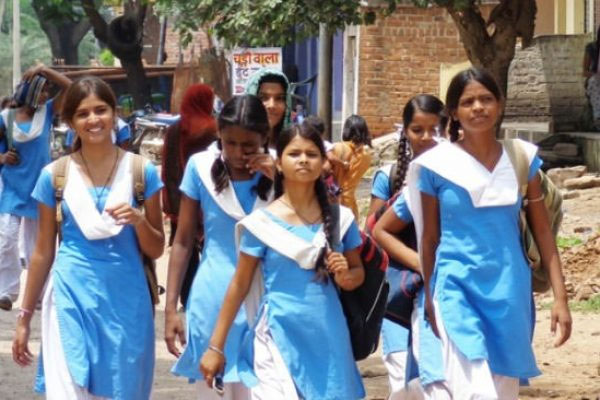Medical experts applauded the Delhi government’s move to reopen schools, universities, and coaching institutes on Friday, but cautioned parents against teaching their children Covid regimens.
The Delhi government stated on Friday that schools for grades 9 to 12, colleges, and coaching institutions will resume on September 1 following a significant improvement in the Covid-19 situation here.
Manish Sisodia, the Deputy Chief Minister of Delhi, stated that teaching and learning will continue to be done in a hybrid approach. Schools must start in a staggered manner with suitable protocols in place, according to Dr. Rahul Nagpal, Director, Pediatrics, and Neonatology at Fortis Hospital in Vasant Kunj.
“What I am seeing is that children are completely lost and we have to look at their mental faculties. Children have to be educated about the new normal by parents. As for schools, they have to ensure proper ventilation in classrooms which is a problem and they might go for hybrid education, some of it might be offline and online,” said Nagpal.
He went on to say that schools will need to create SoPs for student entry and leave, as well as require staff vaccinations. Before establishing schools, personnel must be immunized against Covid-19, according to Dr. Sarita Sharma of PSRI Hospital.
“We don’t have any vaccines against Covid-19 for children available in India as of now but after taking proper precautions and ensuring coronavirus-appropriate behavior, schools can be reopened. All the teachers, caregivers, ancillary staff of schools should be fully immunized against Covid before opening schools,” the senior pediatric consultant said.
In March of last year, schools in the national capital were ordered closed as part of a nationwide lockdown to stop the spread of the coronavirus.
While other states began partial school reopenings in October of last year, the Delhi government only permitted classes 9 to 12 to reopen in January. Isolation has considerably more severe adverse effects in children than Covid infection, according to Dr (Maj) Manish Mannan, HOD Of Paediatrics and Neonatology at Paras Healthcare.
“Mental illnesses, obesity, aggressive behavior, sleep disorders, and other cognitive problems have been rising at an alarming rate which has been going unnoticed. The physical exercises, the brain quiz classes have gone missing during the last year, even after parents tried their best to meet the needs,” Mannan said. He believes that interaction and participation that can only happen in a classroom are a “huge source of learning that has been lost.”
“ICMR stated that kids have a better metabolism to handle viruses, and I believe that too by taking care of their health and nutrition we should allow kids to go to school. It’s good for their mental as well as physical wellbeing,” Mannan added.
While Sisodia stated on Friday that no final decision has been made on junior classes and that a decision would be made after analyzing the impact of reopening schools for senior classes, reports claim that schools for grades 6 to 8 may return as early as September 8.
Although the younger children may not be seriously impacted by Covid-19, Seeds of Innocence’s Dr. Gauri Agarwal believes they may become carriers and infect others at home.
“Opening schools may be a good idea for young adults/teenagers as they will be more careful about following Covid protocols. With smaller children, we have seen that though they are not vulnerable to severe disease, they can become carriers of the virus that can affect people at home — especially the elderly, the unwell, and the pregnant women,” Agarwal said.
She emphasized that while it was vital to educate children on Covid guidelines, they should not be expected to follow them completely.
“So, probably it would be better to wait before we open primary and lower sections of the schools,” she added.
Access to school for younger children must be carefully arranged, according to Dr Vikramjeet Singh, Consultant-Internal Medicine, Aakash Healthcare, because being away from natural, socializing situations for an extended period of time might impact their social skills and mental health.
“Schools may plan supervised, restricted, and staggered physical meetings for children in lower sections to ensure Covid protocols are maintained. With the extent of discussions around Covid protocols, older children may be able to follow social distancing norms and other measures. So, allowing them staggered access to the classroom should be fine. Some schools in Gurgaon have already experimented with this idea,” he said.


